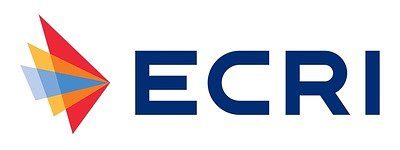
Northern Arizona Healthcare Honored for Safety Culture Rooted in Accountability
Flagstaff hospital system recognized for proactive safety measures, a 'Just Culture,' and embracing leadership principles from Navy SEALs to foster a team-driven approach to patient care.
Northern Arizona Healthcare Honored for Safety Culture Rooted in Accountability
Flagstaff, AZ – Northern Arizona Healthcare (NAH) has been awarded the prestigious ECRI and ISMP PSO Safety Excellence Award, recognizing its commitment to creating a robust patient safety culture. The award, announced earlier this month, highlights NAH’s proactive approach to reducing medical errors, fostering open communication, and embracing innovative leadership strategies.
While many hospitals prioritize patient safety, NAH’s approach stands out for its integration of principles from an unconventional source: the ‘Extreme Ownership’ leadership framework popularized by Navy SEALs. This, combined with a ‘Just Culture’ focused on learning from mistakes rather than assigning blame, has demonstrably improved safety outcomes and fostered a more engaged workforce, according to hospital administrators.
Beyond Checklists: Building a Culture of Accountability
The ECRI and ISMP PSO Safety Excellence Award recognizes organizations demonstrating exceptional patient safety initiatives. NAH’s application, which earned them the honor, detailed a multifaceted approach encompassing data-driven analysis, staff training, and a commitment to transparent reporting. However, the award isn’t simply about implementing checklists and protocols; it’s about cultivating a deep-seated culture of accountability, where every team member feels empowered to identify and address potential safety risks.
“We realized that simply implementing safety protocols wasn’t enough,” explains a hospital administrator. “We needed to change the way our teams thought about safety, to instill a sense of personal responsibility and collective ownership.”
‘Extreme Ownership’ and the Power of Teamwork
The adoption of ‘Extreme Ownership,’ a leadership philosophy emphasizing personal accountability, decisive action, and unwavering support for team members, proved to be a pivotal element in NAH’s safety transformation. Inspired by the principles honed by Navy SEALs in high-stakes environments, the framework emphasizes a proactive approach to problem-solving and a commitment to continuous improvement.
“It’s about breaking down silos between hospitals, departments, and service lines,” said a hospital administrator. “It's about empowering every individual to see themselves as part of one big team, working towards a common goal: providing the highest quality, safest possible care to our patients.”
This shift in mindset has had a tangible impact on NAH’s safety performance. The hospital system has consistently ranked among the safest in Arizona, with significantly lower rates of hospital-acquired infections and adverse events compared to national averages. NAH currently claims the #1 spot in Arizona for preventing hospital-acquired infections, specifically those associated with urinary and central venous catheters, according to the Arizona Department of Health Services.
‘Just Culture’ Fosters Open Communication
Complementing the ‘Extreme Ownership’ framework is NAH’s commitment to a ‘Just Culture.’ This approach recognizes that human error is inevitable, and that learning from mistakes is crucial to preventing future harm. Instead of punishing individuals for errors, a ‘Just Culture’ focuses on identifying systemic factors that contributed to the error and implementing corrective actions.
“We want our staff to feel comfortable reporting errors, near misses, and potential safety hazards without fear of retribution,” explains an administrator. “We believe that by creating a safe and supportive environment, we can encourage open communication and learn from our mistakes.”
NAH recently implemented a new safety event reporting system and introduced “Lifesaver Recognitions” to acknowledge colleagues who proactively identify and address potential safety concerns. This initiative reinforces the non-punitive reporting environment and encourages a culture of continuous improvement.
Data-Driven Improvement and Proactive Monitoring
Beyond the cultural and leadership initiatives, NAH also leverages data analytics to proactively monitor safety performance and identify areas for improvement. The hospital system tracks key metrics such as infection rates, medication errors, and patient falls, using this data to inform quality improvement initiatives.
“We’re constantly analyzing data to identify trends and patterns that could indicate potential safety risks,” says an administrator. “This allows us to proactively address these issues before they lead to harm.”
NAH’s data-driven approach is complemented by a robust system of checks and balances, including regular audits, peer reviews, and patient feedback mechanisms. This ensures that safety protocols are consistently followed and that potential risks are promptly addressed.
A Model for Healthcare Safety
Northern Arizona Healthcare’s commitment to patient safety has earned it recognition as a leader in the field. The ECRI and ISMP PSO Safety Excellence Award is a testament to the hospital system’s unwavering dedication to providing safe, high-quality care. By embracing innovative leadership strategies, fostering a ‘Just Culture,’ and leveraging data analytics, NAH has created a model for healthcare safety that other organizations can learn from.
“We’re proud of the progress we’ve made,” says an administrator, “but we know that there’s always more work to be done. We’re committed to continuously improving our safety performance and providing the best possible care to our patients.”
The hospital's strategic alignment with initiatives such as cultivating a culture of engagement and integrating evidence-based practices demonstrates a long-term commitment to patient safety and a focus on providing exceptional care to the communities it serves.
